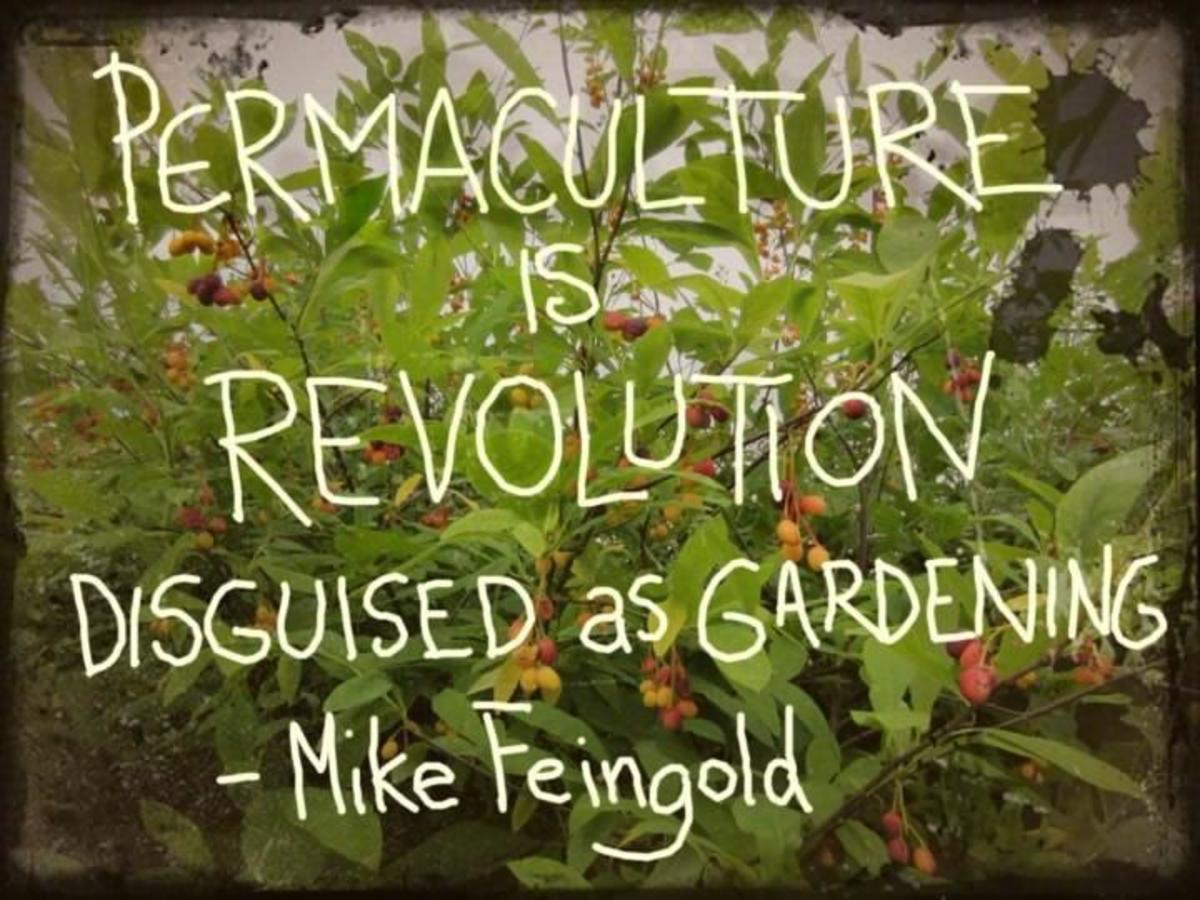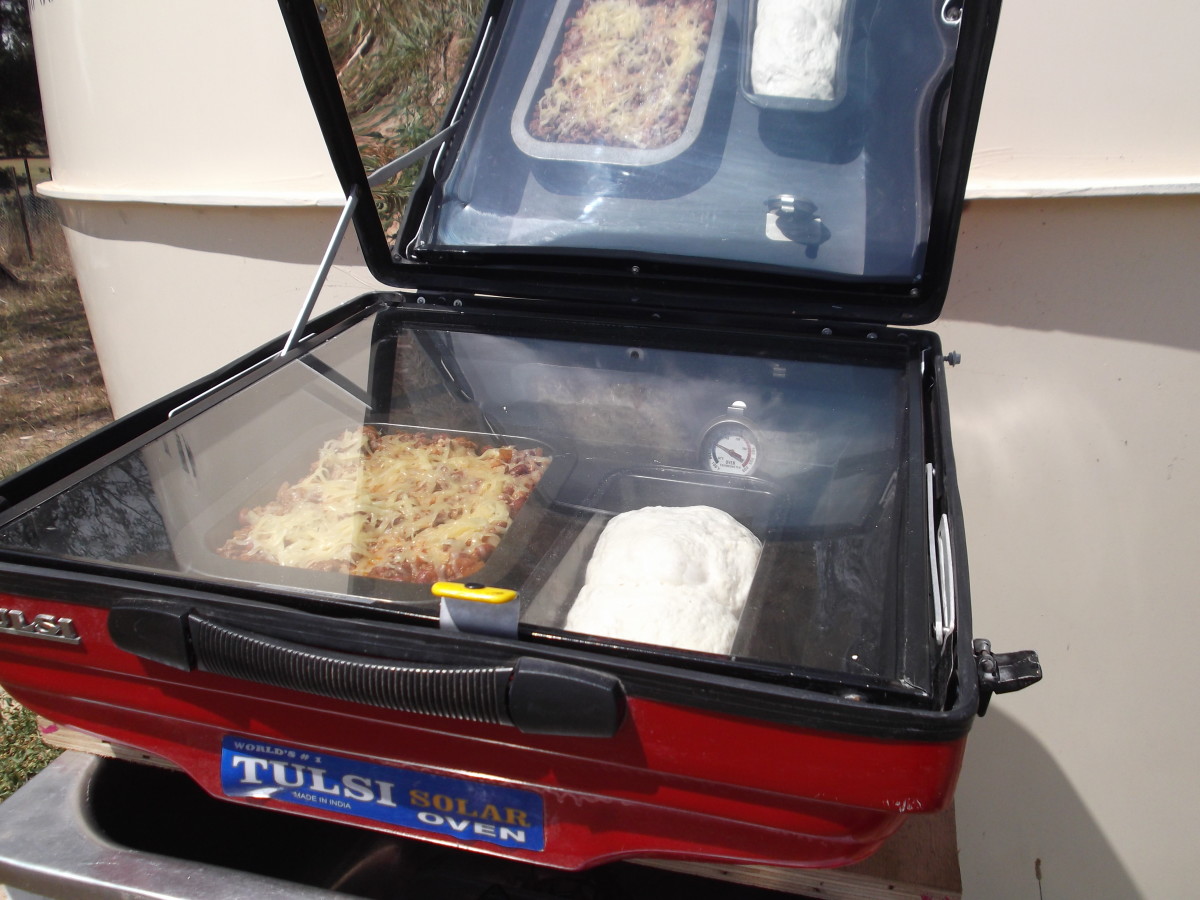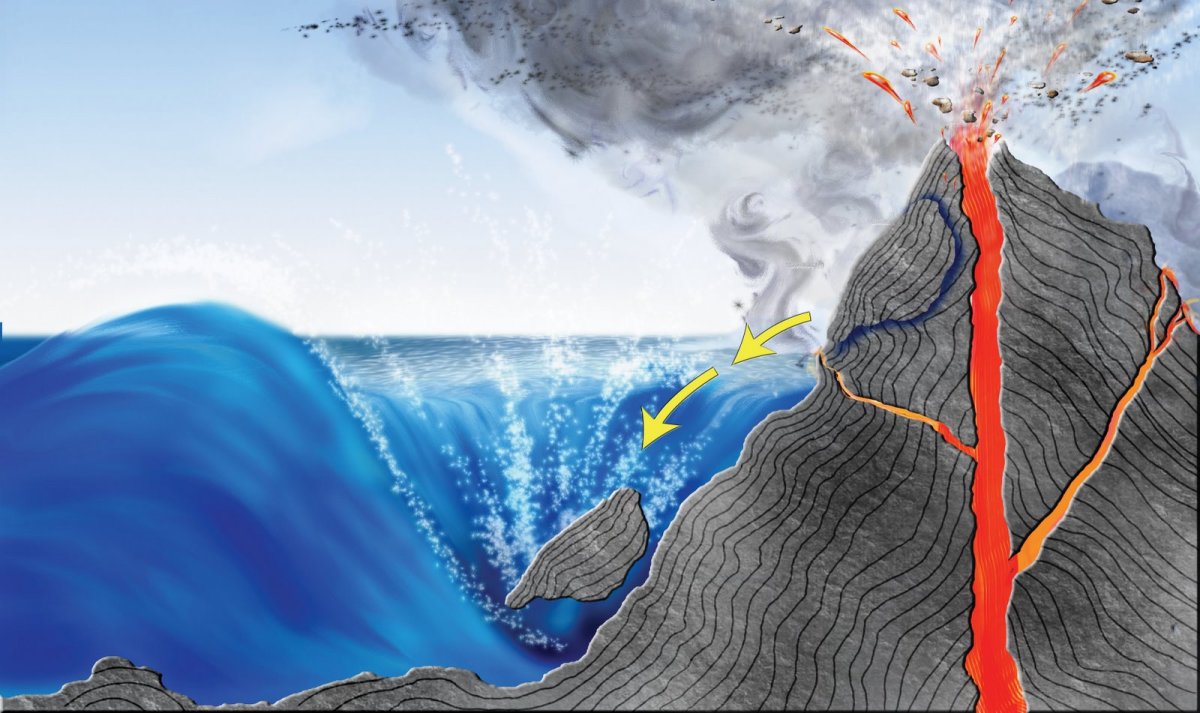Reworking Land and Man - A Reasearch Endeavor
The Title Inspiration
Those that have read some of my other hubs know my love for the band RUSH. This essay was inspired by RUSH's song "Closer to the Heart" on their fifth album A Farewell to Kings.
Introduction
The earth is a gigantic web of interconnected life. Every ecosystem, species, and individual depends on another, sometimes completely different, aspect of life to survive. Humans, thought to be the most exceptionally evolved organisms, have defied these concepts of natural selection and ravaged the earth for progress sake without paying more than a glance at what we may have brought upon the future. A famous biologist, Jonas Stalk, stated, “If all insects on Earth disappeared, within 50 years all life on Earth would end. If all human beings disappeared from the Earth, within 50 years all forms of life would flourish” (goodreads.com). What we don’t realize is that the future is already here. The earth will survive us, but we are ruining our chances of surviving it. We are killing ourselves with the foods we eat, the company we keep, and the stress we place on ourselves. People and nature have renounced their ties and suddenly, all the sociological classes are piled high in cities, living on top of each other yet never truly interacting. The picture is comparable to a parable in the book of Luke, “19There was a rich man who was dressed in purple and fine linen and lived in luxury every day. 20 At his gate was laid a beggar named Lazarus, covered with sores 21 and longing to eat what fell from the rich man’s table” (New International Version, 16:19-21 ). In America, people are suffering because of the demands of a corrupt society. According to the United States Census in 2012, 46.5 million Americans were considered “in poverty” (census.gov, figure 4). That is about 15% of the population. To maintain the resources needed to stay alive, people in poverty come together to form cluster households, and fictive kin. It turns out, people subconsciously search for unity in their efforts to survive, therefore embracing an instinctual need for interconnectivity. So, if struggling to keep up with the infinitely well off classes isn’t working to get individuals out of poverty, what will? In Europe, a concept of communal living is producing a remarkable number of happy, well maintained people. They live in houses designed to accommodate numerous families that help and interact with each other, extinguishing any sense of uselessness that comes from living and working alone. By applying this concept to those in poverty here at home, we can reform the idea that only individually we can flourish. In reality, it isn’t every man for himself, because no man is truly at satisfied alone. Just as lions need a pride, we need cooperative communities designed to engage every member. However, bringing people together isn’t the only aspect of this theory. We also need to bring these people out of cities. Cities are tainted by the concepts of processed goods and cookie cutter living. By bringing people back to nature and enabling them to grow their own food, provide for themselves and others, and allowing them to pursue happiness they will learn to value themselves as well as the earth. On the whole, we need to be a sustainably developed nation. By implementing a concept of communal living, America could solve the poverty situation while rejecting the principles of agribusiness, unequal money distribution, and materialism which are preventing the upward momentum of the lower classes.

What are the three most exploited crops in the United States?
Agribusiness - The not so cheap food movement...
Agribusiness, directly responsible for the cheap food movement, is a huge contributor to the problems people face in America. Getting sucked into the grocery stores with colorful labels and convincing promises is all too easy when society has slyly banished the truly organic, locally grown products that are vital to our health and prosperity. By defeating agribusiness and returning to sustainable farming, the damage humans have inflicted on the earth and themselves could be reversed. Considering the alternatives to sustainable development is best said by Holmes Rolston III in Global Dialogue; “…underdevelopment, poverty, hunger, malnutrition, disease, illiteracy, high infant mortality, and low life expectancy” (2). Can the United States afford these outcomes? While these things have been seen to affect the lower income classes, agribusiness and its products directly affect the upper classes as well. People have been rewired to choose convenience over what is more beneficial long-term. So why isn’t Agribusiness falling into the light? A multilayered, pyramid of mass money holders that have monopolized the previously private owned farmland are in control of an obscene amount of money, as well as the people that expose and regiment the type of chaos they are creating. Colin Todhunter, a writer for Global Research, stated; “Now that the government and Western agribusiness have conspired to set the corporate controlled merry-go-round in motion, there may be little chance of getting off. Having had control stripped from them, farmers may well be forever beholden to US agribusiness which took their power” (1). How could a theory of communicable living combat this immense power struggle for cheap food? By bringing government in to overlook the processes of production and selling, these communities could, in theory, grow most or all of the food that is consumed by the people living there. This would not only improve the physical health of its inhabitants, but by obtaining a sense of accomplishment, the people would gain a sense of self.
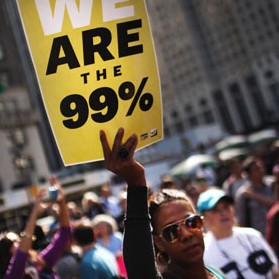
Effects of the 1% on the rest of us
The unequal distribution of money in America is said to be one of the main reasons behind the poverty situation we are facing. The result of ignoring a problem like this resembles something of a dictatorship rather than a democracy. Holmes Rolston III said, “Underdevelopment grows worse where economic growth also produces increasing and unjustified inequality of wealth – if the rich get much richer and the poor get proportionately poorer” (2). By taking action and getting people out of situations where the only option is to grovel at the feet of the rich, a more balanced society will form. David Barnhizer stated in “Waking from Sustainability’s ‘Impossible Dream’”; “The factors of greed and self interest, limited human capacity, inordinate systematic complexity, and the power of large-scale driving forces beyond our ability to control lead to the unsustainability of human systems” (5). Basically, Barnhizer believes that until humans decide to evolve and embrace new ideas, the world will never progress in the right direction. Money now officially rules the world, but it doesn’t have to rule its people. In these sustainable communities, the cost of food would be virtually non-existent. Jobs would be created and the manufacturing of the products made by the people would be a small source of income for those able to work. This is not a rich, money making idea, but it is capable of changing lives. It is a step toward a future that isn’t controlled entirely by Wall Street and family money.
What we own ends up owning us
Materialism is the concept of owning the most stuff and is seen as a source of power among people. The biggest house, the newest car, the deepest swimming pool…these are all products of a delusional mindset. For some reason, someone thought that having things could provide joy and fulfillment, but it can’t. People need other people to interact with and to look out for to find satisfaction. The deepening power struggle between the rich and the poor is heightened every time a child in poverty can’t have the newest X-Box model for Christmas. Relieving people of the constant struggle for stuff could provide instantaneous happiness. Materialism weighs on the mind as well as foundations. Barnhizer wrote, “Feeling helpless in the face of inordinate complexity and vast impersonal forces causes us to flee from our personal responsibility and become absorbed into the systems of institutions.” (34). Fixation on what is unattainable is what drives people insane. However, by relinquishing the worries of food insecurity, housing, and materialism people can focus on individual success and family priorities.
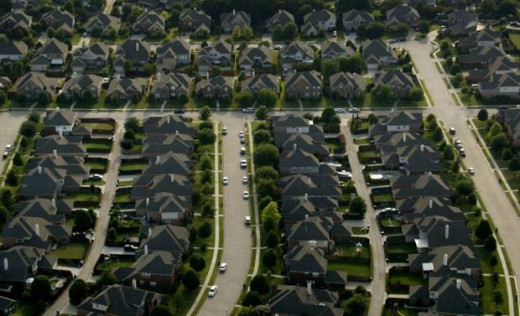
Conclusion
If the point of advances in science and technology is to prepare humankind for the future, why isn’t self-preservation being addressed? People need interpersonal contributions from others to identify individually. Unity is vital to individual success. Adam Smith, quoted in James Harvey’s essay, “Sustainable agriculture and free market economics: Finding common ground in Adam Smith” states, “Every man is, no doubt, by nature, first and principally recommended to his own care; and as he is fitter to take of himself than of any other person, it is fit and right that it should be so” (8). A country full of happy healthy people that can coincide and contribute to society seems like a future worth fighting for in America. A theory of communal living may be just the thing to kick start new thinking in the US. It ultimately comes down to whether or not people want to change. Greed can’t be the force behind people’s actions if we are going to make it in this world. The way things are doesn’t have to be the ways things are going to be. People have the capacity to change and provoke change in the wake of action. Commitment and determination can create both success and destruction. Something has to happen though, and soon. Maybe the step after sustainable communities is to legalize the growth and production of cannabis. God knows everyone would cheer up a little.
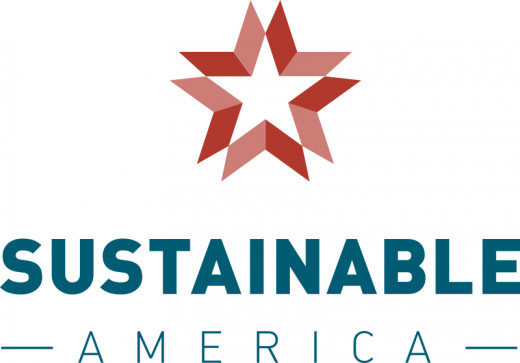
Works Cited
Barnhizer, David. “Waking from Sustainability’s “Impossible Dream”: The Decisionmaking
Realities of Business and Government.” Georgetown International Environmental Law
Review 18:4 (2006) 595-690. ProQuest. Web. 18 Nov 2013.
James, Harvey S. “Sustainable agriculture and free market economics: Finding common ground
in Adam Smith.” Agriculture and Human Values 23:1 (2006) 427-438. ProQuest. Web.
18 Nov 2013.
“Quotable Quote.” Goodreads. Web. 12 Dec 2013
Rolston, Holmes. “Justifying Sustainable Development: A Continuing Ethical Search.” Global
Dialogue 4:1 (2002) 103-113. ProQuest. Web. 18 Nov 2013.
The New International Version. Biblica, 2011. Web. 12 Dec 2013
Todhunter, Colin. “GMO Agribusiness and the Destructive Nature of Global Capitalism.” Global
Research. 2013. Web. 18 Nov 2013.


